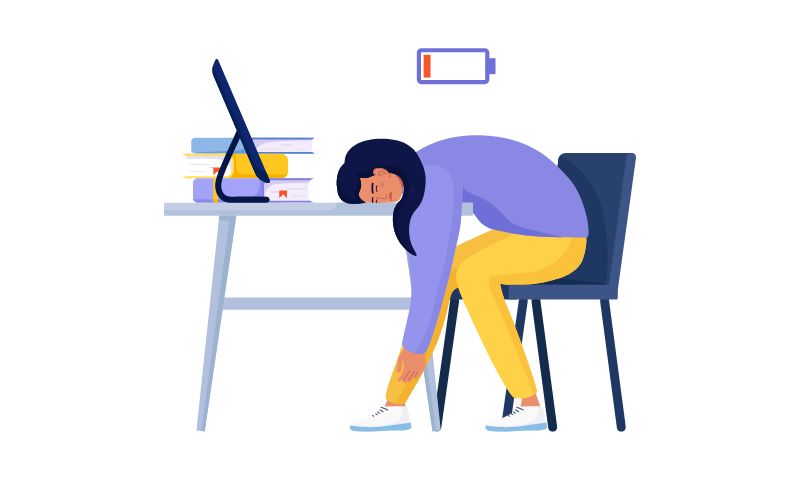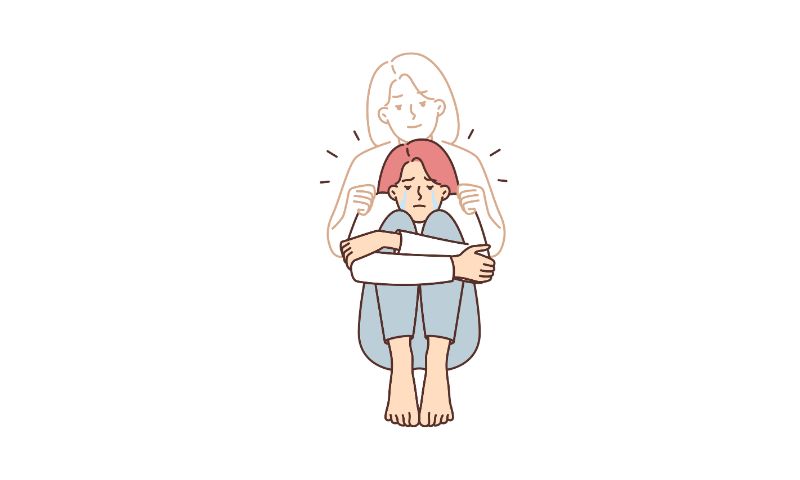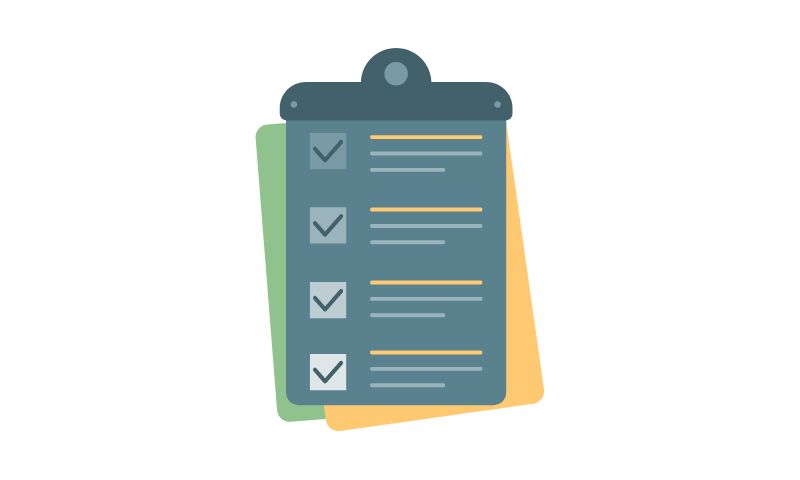In the modern education system, homework has long been a contentious topic, sparking debates among educators, parents, and students alike. While it is often viewed as an integral part of the learning process, there is growing evidence suggesting that homework may not be as beneficial as previously thought. This article explores the reasons why homework should be banned, shedding light on the potential negative effects it can have on students’ well-being and academic performance.
Why should ban homework?
Table of Contents
Exploring the reasons behind advocating for a ban on homework reveals various perspectives and concerns. Here are some common arguments put forth by those who believe homework should be banned:
Lack of Time for Other Activities
One of the primary reasons for banning homework is the belief that it consumes a significant portion of a student’s time, leaving little room for extracurricular activities, family time, or pursuing personal interests.
Critics argue that this imbalance can lead to stress, burnout, and an overall lack of well-rounded development.
Negative Impact on Mental Health
Excessive homework can have detrimental effects on students’ mental health. The pressure to complete assignments, coupled with high expectations and tight deadlines, can contribute to stress, anxiety, and sleep deprivation.
Critics argue that a ban on homework would alleviate these pressures and promote healthier well-being among students.
Inequality and Disadvantaged Students
Homework can exacerbate educational inequalities. Not all students have equal access to resources, such as a quiet study environment or parental assistance.
This discrepancy can widen the achievement gap and place disadvantaged students at a further disadvantage. Advocates for a ban argue that eliminating homework would help level the playing field and promote equity in education.
Questioning Effectiveness
Critics also question the effectiveness of homework in terms of enhancing learning outcomes. Some argue that the benefits of homework.
Such as increased academic achievement, can be achieved through alternative methods that are less burdensome and more engaging for students. They suggest that class time should be optimized for active learning and meaningful teacher-student interactions instead.
Encouraging Autonomy and Personalized Learning
Banning homework can allow students to have more autonomy over their learning and promote personalized approaches to education.
Advocates argue that students should have the freedom to explore their interests, engage in self-directed learning, and pursue projects that align with their passions and strengths.
It is important to note that opinions on banning homework can vary, and there are counterarguments supporting the value of homework. These counterarguments emphasize the reinforcement of learning, development of discipline and responsibility, and preparation for higher education.
What are 10 disadvantages of homework?
There are several perceived disadvantages of homework that critics often raise. Here are ten commonly mentioned drawbacks associated with homework:
Time Constraints
Homework can consume a significant amount of a student’s time, leaving little room for leisure activities, family time, or pursuing personal interests.
Increased Stress
The pressure to complete homework assignments within tight deadlines can lead to heightened stress levels, especially when students have multiple subjects to focus on simultaneously.
Lack of Balance
Excessive homework can disrupt the balance between academic commitments and other aspects of a student’s life, such as extracurricular activities, hobbies, and social interactions.
Negative Impact on Mental Health
Heavy workloads and the associated stress can contribute to anxiety, sleep deprivation, and other mental health issues among students.
Limited Learning Autonomy
Homework often requires students to follow specific instructions and guidelines, limiting their ability to explore alternative approaches or pursue their own learning interests.
Potential for Inequality
Not all students have equal access to resources or support systems outside of school, which can create disparities in completing homework and lead to educational inequalities.
Loss of Interest and Engagement
Lengthy or repetitive homework tasks can result in a loss of interest, leading to decreased motivation, disengagement, and a negative attitude towards learning.
Negative Impact on Family Life
Excessive homework can strain family dynamics, as it may limit quality time spent together, disrupt meal times, or cause conflicts between parents and children.
Increased Pressure on Students
The need to perform well in homework assignments, coupled with the fear of negative consequences for incomplete or subpar work, can intensify academic pressure on students.
Potential for Burnout
Overwhelming workloads and constant deadlines can contribute to feelings of burnout among students, leading to exhaustion and a decline in overall well-being.
It is important to note that these perceived disadvantages may vary among individuals and are influenced by factors such as the educational system, workload distribution, and the specific practices implemented by teachers and schools.
Who invented homework 😡?
The invention of homework cannot be attributed to a single individual. The concept of assigning academic tasks to be completed outside of school has evolved over centuries. The origins of homework can be traced back to ancient civilizations where scholars and educators recognized the value of practice and independent study.
The practice of assigning homework as we know it today has its roots in the educational reforms of the 19th century. Influential figure.
Such as Horace Mann in the United States and Johann Heinrich Pestalozzi in Europe played significant roles in shaping modern education systems, including the incorporation of homework as a regular part of students’ academic routine.
However, it is worth noting that the implementation and practices of homework have evolved over time and vary across different educational systems and cultures. The purpose, amount, and approach to homework continue to be subject to ongoing research, debate, and adaptation in response to changing educational needs and goals.
Is homework a punishment for kids?
The perception of homework as a punishment for kids is a matter of perspective and can vary among individuals. While some may argue that homework is a form of punishment, it is important to consider the intention and purpose behind assigning homework.
Homework is primarily designed to reinforce learning, provide opportunities for independent practice, and extend the learning process beyond the classroom. It serves as a tool for students to review and apply what they have learned, develop skills, and prepare for assessments.
When used effectively, homework can contribute to academic growth and help students develop important habits such as responsibility, time management, and self-discipline.
Should homework be banned for kids?
The question of whether homework should be banned for kids is a topic of ongoing debate in the field of education. While there is no definitive answer that applies universally to all situations, it is important to consider the different perspectives and weigh the potential benefits and drawbacks of homework.
Advocates for banning homework argue the following points:
Reduced Stress and Well-being
Banning homework can alleviate stress levels among students, allowing them to focus on their well-being, mental health, and other activities outside of school. It can promote a healthier balance between academic responsibilities and personal life.
Increased Engagement and Interest
Without the burden of homework, students may have more time and energy to engage in extracurricular activities, pursue their passions, and explore personal interests. This freedom can foster a love for learning and intrinsic motivation.
Equity and Access
Banning homework can help address educational inequalities. Not all students have equal access to resources and support systems outside of school, which can create disparities in completing homework assignments. Eliminating homework can level the playing field and promote fairness.
Enhanced Learning Strategies
Advocates argue that alternative approaches, such as project-based learning, experiential learning, and collaborative activities, can be more effective in promoting critical thinking, problem-solving, and creativity compared to traditional homework assignments.
On the other hand, opponents of banning homework raise the following arguments:
Reinforcement of Learning
Homework provides an opportunity for students to reinforce what they have learned in class, practice skills, and develop a deeper understanding of the subject matter.
Responsibility and Time Management
Homework helps students develop important life skills such as responsibility, self-discipline, organization, and time management. These skills are crucial for success in higher education and the workforce.
Parental Involvement
Homework can promote parental involvement and engagement in a child’s education. It provides an opportunity for parents to understand their child’s learning progress and support their academic development.
Preparation for Higher Education
Homework is often seen as a preparation for the demands of higher education, where independent study and self-directed learning are essential.
Ultimately, the decision to ban or retain homework depends on various factors, including the educational context, the quality and quantity of assignments, and the specific needs and circumstances of the students. Striking a balance between academic requirements, student well-being, and promoting effective learning experiences is crucial to ensure a holistic and meaningful education.
Why homework should not be banned?
While the debate on whether homework should be banned continues, there are compelling arguments in favor of retaining homework as an integral part of the educational system. Here are some reasons why homework should not be banned:
Reinforcement of Learning
Homework provides an opportunity for students to reinforce and consolidate what they have learned in class. Through independent practice, students can solidify their understanding of concepts, apply knowledge to new situations, and develop essential skills.
Preparation for Future Responsibilities
Homework helps students develop important skills such as time management, organization, self-discipline, and responsibility. These skills are essential for success not only in academics but also in future endeavors, including higher education and the workplace.
Extension of Learning Beyond the Classroom
Homework allows students to delve deeper into a subject, explore additional resources, and engage in independent research. It promotes self-directed learning and encourages students to take ownership of their education.
Practice and Mastery
Regular practice through homework enables students to master foundational concepts and skills. Repetition and reinforcement help solidify learning, improve retention, and build fluency in various subjects.
Individualized Learning
Homework assignments can be tailored to meet the individual needs and abilities of students. Teachers can provide differentiated tasks or additional challenges to cater to varying levels of understanding and promote personalized learning.
Parental Involvement and Support
Homework provides an avenue for parents to be involved in their child’s education. It allows parents to monitor their child’s progress, understand their strengths and weaknesses, and offer guidance and support when needed.
Accountability and Assessment
Homework assignments contribute to the assessment and evaluation of a student’s progress. They provide valuable feedback for both students and teachers, highlighting areas that require further attention or additional instruction.
Preparation for Higher Education
Homework prepares students for the rigors of higher education, where independent study, research, and self-directed learning are essential components. By engaging in homework, students develop the necessary skills and work habits to succeed in advanced academic pursuits.
The Purpose of Homework
The purpose of homework extends beyond the completion of tasks and assignments outside of the classroom. Homework serves several important educational objectives that contribute to students’ learning and academic development.
Reinforcement of Learning
Homework provides an opportunity for students to reinforce and apply the concepts, skills, and knowledge they have learned in class.
It allows them to practice and solidify their understanding through independent work, which can lead to better retention and mastery of the material.
Extension of Learning
Homework extends learning beyond the classroom, encouraging students to explore topics in greater depth and engage in independent research.
It promotes critical thinking, problem-solving, and independent inquiry, fostering a deeper understanding of the subject matter.
Skill Development
Homework helps students develop important skills such as time management, organization, self-discipline, and responsibility.
By completing assignments within designated time frames, students learn to prioritize tasks, manage their workload, and meet deadlines – skills that are valuable in both academic and professional settings.
Preparation for Assessments
Homework prepares students for assessments, such as tests, quizzes, and exams. It allows them to practice applying their knowledge, review concepts, and identify areas that require further clarification or study. This helps build confidence and improves performance in formal evaluations.
Engagement and Active Learning
Homework can promote active engagement in the learning process by involving students in activities that require reflection, analysis, and problem-solving. It encourages independent thinking, creativity, and self-expression, fostering a deeper connection to the subject matter.
Communication and Collaboration
Homework can serve as a means of communication between teachers, students, and parents. It provides an avenue for teachers to provide feedback, track progress, and identify areas of improvement.
It also enables parents to be involved in their child’s education and gain insight into their academic development.
Preparation for Real-World Responsibilities
Homework instills a sense of responsibility and accountability in students, mirroring the expectations they will encounter in higher education and future careers.
It prepares them for the demands of college or workplace environments, where self-directed learning and independent work are often required.
Why Homework Should Be Banned?
While homework has been a longstanding practice in education, it is important to acknowledge the negative effects it can have on students.
These effects should be taken into consideration when evaluating the overall impact of homework on students’ well-being, mental health, and academic performance.
Increased Stress and Pressure

Excessive homework assignments can lead to heightened stress levels among students. The pressure to complete numerous tasks within tight deadlines can cause anxiety, burnout, and feelings of being overwhelmed.
This can negatively affect students’ mental well-being and hinder their ability to perform at their best.
Lack of Time for Other Activities

The time-consuming nature of homework can limit students’ opportunities to engage in extracurricular activities, pursue hobbies, spend quality time with family and friends, and participate in physical exercise.
Balancing homework with other aspects of life is crucial for a well-rounded education and healthy development.
Reduced Sleep and Fatigue

Homework often extends into evenings and weekends, leaving students with inadequate time for rest and sleep. Insufficient sleep can result in fatigue, decreased concentration, and diminished cognitive functioning, ultimately impacting students’ ability to learn effectively and retain information.
Loss of Interest in Learning

When homework becomes monotonous, repetitive, or disconnected from students’ interests, it can lead to a loss of enthusiasm for learning.
Excessive or uninspiring homework assignments may cause students to view education as a chore rather than a source of curiosity and growth, potentially diminishing their intrinsic motivation.
Inequality and Academic Pressure

The burden of homework can disproportionately affect students from disadvantaged backgrounds who may lack access to resources or support systems outside of school.
Additionally, excessive homework can contribute to a competitive academic environment, fostering a culture of intense pressure and comparison among students.
Potential for Negative Parental Involvement

Excessive homework can strain parent-child relationships when parents feel compelled to assume the role of enforcer or tutor. This can lead to increased stress within the family and diminish the quality of parent-child interactions.
Limited Personalization and Creativity

Homework assignments often follow a standardized approach, leaving little room for personalization, creativity, and individual learning styles.
This can hinder students’ ability to explore their own interests, think critically, and develop problem-solving skills outside of the prescribed curriculum.
Inequality in Access and Support

Students from disadvantaged backgrounds may face challenges in completing homework due to limited access to resources such as textbooks, computers, or internet connectivity.
This inequality in access can widen the achievement gap and contribute to educational disparities.
Limited Time for Self-Reflection and Creativity

Excessive homework can leave little room for self-reflection, introspection, and creative expression. Students may feel compelled to prioritize completing assignments over exploring their own interests, pursuing independent projects, or engaging in self-directed learning.
Impact on Physical Health

Prolonged periods of sitting and excessive mental exertion associated with homework can contribute to sedentary behaviors and physical health issues.
lack of writing of physical activity and prolonged screen time can lead to a sedentary lifestyle, posture problems, eye strain, and musculoskeletal issues.
Loss of Autonomy and Personal Agency

Excessive homework can diminish students’ sense of autonomy and personal agency over their learning. When assignments are rigidly structured and dictate how, when, and what students must learn.
It limits their ability to explore topics of interest or pursue personalized learning pathways.
Negative Attitudes towards Learning

A heavy emphasis on homework can inadvertently foster negative attitudes towards learning. Students may associate education with stress, pressure, and repetitive tasks, leading to a disengagement from the learning process and a diminished desire to explore new ideas or develop a growth mindset.
Impact on Mental Health

The stress, anxiety, and pressure associated with homework can have a detrimental effect on students’ mental health. It can contribute to symptoms of depression, anxiety disorders, sleep disturbances, and overall emotional well-being.
Promoting a balanced approach to learning is crucial for safeguarding students’ mental health.
Overemphasis on Grades and Performance

Homework-centric education systems often prioritize grades and performance over holistic development and individual growth.
The focus on completing assignments for the sake of achieving high marks can overshadow the joy of learning, creativity, and the development of critical thinking skills.
Limitations for Multidimensional Assessment

Excessive homework may restrict teachers’ ability to assess students comprehensively. Relying heavily on homework as a primary mode of assessment can overlook other aspects of a student’s abilities, such as communication skills, creativity, problem-solving, and social-emotional development.
Alternative Approaches to Homework
In recent years, alternative approaches to learning have gained recognition for their potential to address the limitations and negative effects associated with traditional homework.
These approaches prioritize student well-being, engagement, and meaningful learning experiences. Here are some examples of alternative approaches that can enhance the educational landscape:
Project-Based Learning
Project-based learning involves students working on real-world projects or inquiries that promote critical thinking, collaboration, and problem-solving skills.
Instead of assigning repetitive homework, educators design projects that allow students to apply their knowledge in practical contexts, fostering a deeper understanding of the subject matter.
Flipped Classroom
In a flipped classroom model, students access instructional materials, such as videos or readings, outside of class time. Classroom sessions are then dedicated to active learning, discussions, and hands-on activities.
This approach encourages students to engage with the content during class, receive immediate feedback, and collaborate with peers and teachers.
Experiential Learning
Experiential learning focuses on providing students with firsthand experiences to explore and understand concepts. Field trips, simulations, role-playing activities, and hands-on experiments are examples of experiential learning methods.
By actively engaging with the subject matter, students develop a deeper understanding and retain knowledge more effectively.
Personalized Learning
Personalized learning recognizes that students have unique learning styles, interests, and paces of learning. This approach tailors instruction to individual students’ needs, allowing them to progress at their own pace and explore topics of interest.
Adaptive technology, differentiated instruction, and individualized projects are key components of personalized learning.
Collaborative Learning
Collaborative learning emphasizes cooperation, teamwork, and peer interaction. Students work together in groups or pairs to solve problems, discuss ideas, and share knowledge.
This approach promotes social skills, communication, and the development of a supportive learning community.
Authentic Assessments
Authentic assessments go beyond traditional exams and quizzes. They assess students’ understanding and skills through real-world tasks and demonstrations of learning.
Portfolios, presentations, performances, and exhibitions are examples of authentic assessments that provide a more holistic view of students’ capabilities.
Mindfulness and Well-being Practices
Incorporating mindfulness techniques, such as breathing exercises, meditation, and reflection, into the learning environment can help students manage stress, enhance focus, and promote overall well-being.
Creating a positive and nurturing classroom environment is essential for fostering healthy learning experiences.
By embracing these alternative approaches, educators can create engaging and meaningful learning opportunities that cater to student’s diverse needs and promote their overall development.
These approaches mitigate the negative effects associated with traditional homework, cultivate a lifelong love for learning, and empower students to become active participants in their education.
Conclusion
In conclusion, the debate surrounding whether homework should be banned is a complex and multifaceted issue. At the same time, homework has long been seen as a fundamental part of education.
It is important to consider the potential negative effects it can have on students’ well-being, mental health, and overall learning experience.
The arguments against homework being assigned to students are rooted in the belief that it can lead to increased stress levels, limited free time for other activities, and a lack of opportunity for students to explore their own interests and develop essential life skills.
Banning homework would allow students to better balance their academic responsibilities and personal lives. It would also provide them with the opportunity to engage in extracurricular activities, pursue hobbies, and spend quality time with family and friends.
Additionally, it could encourage students to take ownership of their learning by fostering a love for knowledge rather than treating education as a mere checklist of assignments.
However, it is important to note that eliminating homework may not be the most effective solution. Homework, when designed thoughtfully and aligned with the learning objectives, can reinforce concepts, encourage independent thinking, and develop crucial skills such as time management and self-discipline.
Therefore, a more balanced approach is necessary, focusing on quality over quantity and considering students’ individual needs and abilities.
Ultimately, the decision about whether homework should be banned should be based on comprehensive research, open dialogue between educators, students, and parents, and a deep understanding of each student’s educational goals and needs.
Striking a balance between academic responsibilities and overall well-being is crucial in fostering a positive and effective learning environment.
At CallTutor, we understand the challenges students face with excessive homework and its impact on their well-being. While homework is meant to reinforce learning, too much of it can lead to stress, burnout, and reduced creativity. If you struggle with assignments, our expert tutors are here to help. Simply submit your work, and we’ll provide step-by-step guidance to make learning easier and more effective. We also offer professional assignment help across various subjects. Visit CallTutor today for expert academic support and stress-free learning!
Frequently Asked Questions
Will banning homework affect students’ academic performance negatively?
No, banning homework allows for alternative learning approaches that can enhance academic performance.
How can parents support their child’s education without homework?
Parents can engage in meaningful discussions about school topics, provide resources, and encourage active learning beyond the classroom.
What are the potential benefits of project-based learning?
Project-based learning promotes critical thinking, problem-solving, and the practical application of knowledge.
How can teachers ensure fairness in assessments without homework?
Teachers can implement various assessment methods, including formative assessments, presentations, and project evaluations, to gauge students’ progress fairly.
What steps can schools take to address the concerns of homework opponents?
Schools can establish open dialogues with parents, students, and educators, while exploring alternative approaches that prioritize student well-being and engagement.



